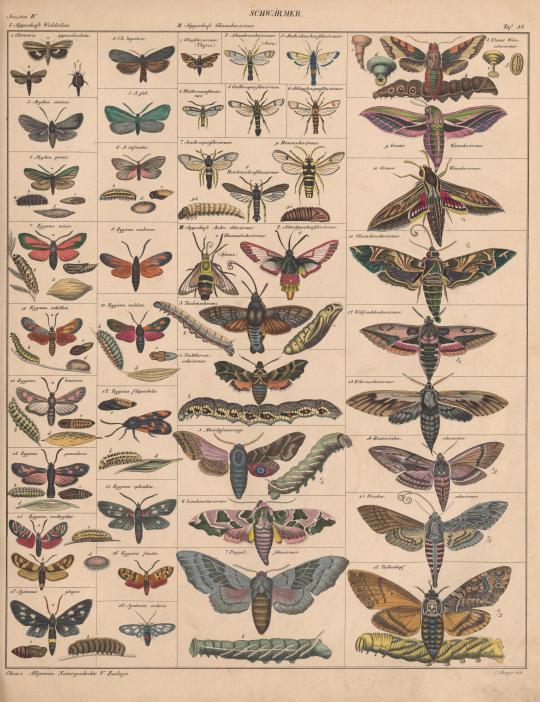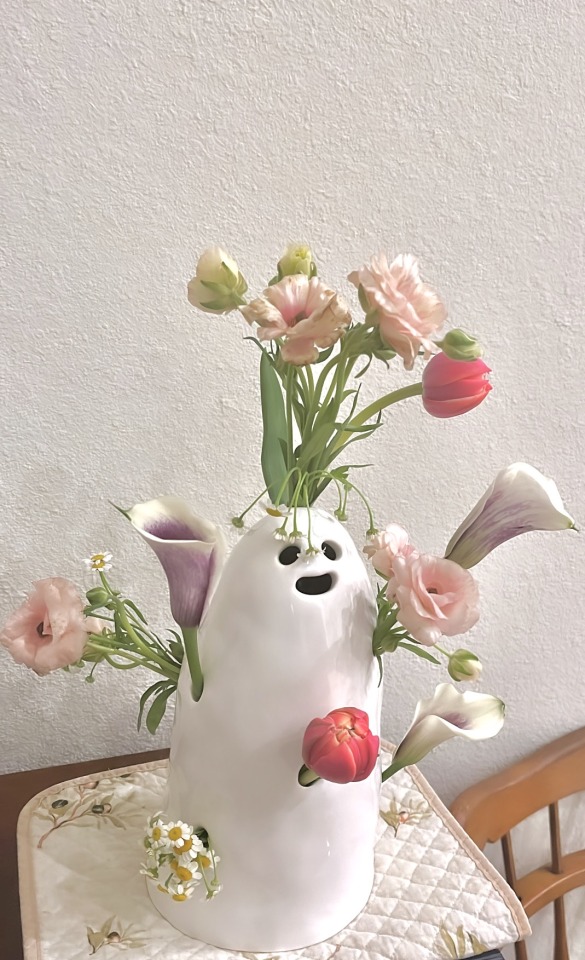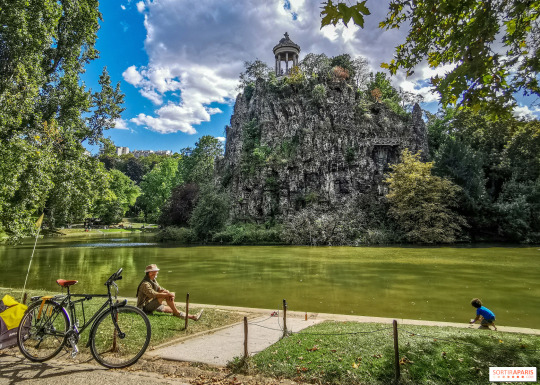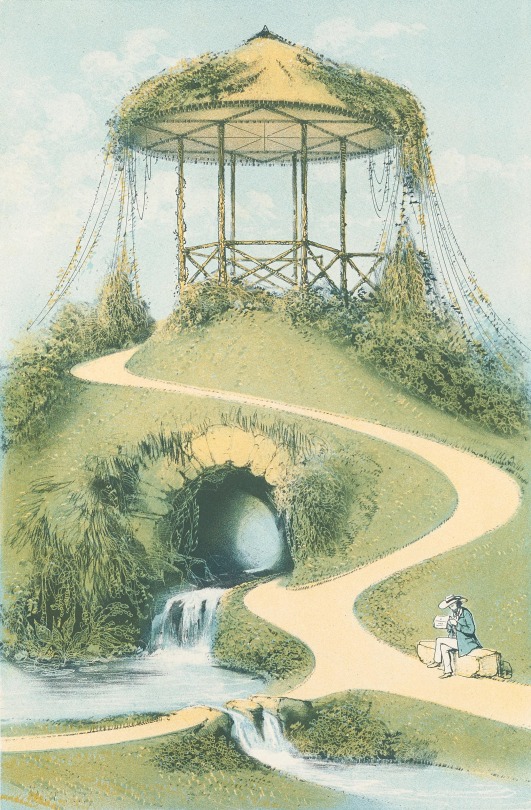Text
I feel like most problems are solved with a good nap, a trusted friend or conversation, a healthy meal, and time in nature.
But you know, “we live in a society”
1 note
·
View note
Text
How others behave, at your most vulnerable, reveals truth.
Misunderstandings are a fact of life, but sometimes contradictory signals beg confrontation with predictable difficulties. Interrogating intentions alongside their execution, could promptly lead to banal defensiveness and counterattack.
Because, in the end - how in the flip is one to transparently interview the subconscious. Capable of hiding itself, not only to others, but remarkably also to itself. Within that gradient, of intricate identity complex and coded behavior, presents diluted motivations and a terrifying capability to reconstruct reality for convenience.
The strange experience, to be told unequivocally “you’re not a burden” among other endearing terms and tribalistic reassurances, and then eventually fall from grace. What starts as a vulnerable surfacing of hurt, disconnection, and the opportunity to rebuild a friendship - becomes a rift. Soother turned aggressor, suddenly “we’re very different people, perhaps this is terminable - you are indeed the issue”.
To experience the strange resentment and personal attacks, to have your patient observation of a situation with transparent documentation distorted into extremes then dismissed. An inconvenient perspective to one’s identity construction? Or something more devious? Intense. A paradigm shift, and reclassification immediately shaping. From privilege to burden. Within two conversations, from one table to another - weeks apart. And utterly curious to experience at such rapid cycles.
These bio-psychosocial minutiae are ubiquitous and leave no human immune. Maybe the only solution? Slow down. Let go.
To proclaim life in absolutes, is to ignore the curious beauty of diversity. But I see nothing beautiful in cruelty. As many others also believe: the highest intelligence, is compassion. Recognize that healthy equilibrium tilts not towards individuality but connection.
Respecting your health, having meaningful conversations, and the humility to admit mistakes while carefully observing contradictions. The delicate movement of behavioral and emotional consensus.
0 notes
Text

Illustrations of moths from Lorenz Oken's Allgemeine Naturgeschichte für alle Stände atlas (1833-1834).
Full text here.
520 notes
·
View notes
Text

Adore this beautiful fella. Evoking a whimsical, vulnerable, and alchemical presence - a magical feeling when the botanical inputs connect.
Highly pleasing concept by Lorien Stern
6 notes
·
View notes
Text
I spent roughly two hours consolidating my emotional and academic experience of a Romanian castle into a few short paragraphs for an excited instagram post, then I swiped away to double-check the boundaries between Transylvanian and Wallachian forests.. then swiped back to my instagram app.. which independently chose to reset. Without saving any of my tediously edited thoughts. Which I’m presently incapable of recreating to the same beat.
Tragic. And so banal. Mostly banal. This isn’t my first rodeo, yet here I am again. Months later.
This castle is worth describing a second time though. There’s something so gratifying about revisiting happy moments, then locking in the curious ideas and stories it stirs up. I’ll draft another needless perspective later :) Personal joys are like that, thankfully

#peles castle#romania#sinaia#save your progress#do not trust instagram#musings on lost progress#my photography
1 note
·
View note
Text
This makes so much sense to me, and I’ve had Braiding Sweetgrass on my reading list for too long. Wonderful references, and a reminder that the best (and most sustainable) nudges come from a calm compassion - not anxiety.
Problems like climate change, where solving them requires millions of people to collectively work at hundreds of different solutions at once, are black holes for internal peacefulness because they give you a type of frustration where you alternately become bitter towards yourself or everyone around you. "If only I could work harder to fix the problem!" makes you exhausted, so you must become angry at others: "If only they cared about the problem!"
People who are already working on fixing climate change need to convince more people to work on it. And a popular thing is to share writings that describe how doomed we all are if climate change is not fixed, how terrible everything will be because of climate change, and how quickly all the treasures of our world are being lost.
There is a particular understanding of human behavior that is being accepted here without thinking about it hard enough. Popular news media shows headlines with terrible prophecies, written that way in hopes of getting the attention of otherwise disinterested people, who will then be "motivated" to fix climate change.
The trouble is that fear is no good for motivating thoughtful, patient, steady commitment to solving a problem. Fear is made to cause an organism to avoid things that might harm it. It creates a brief and explosive pulse of action where the organism's energy pours out as it instinctively, thoughtlessly reacts to escape the danger as fast as possible.
It's silly to blame people for avoiding thinking about climate change. The point of an organism responding to stressors is to avoid them. Oftentimes, the only tool people are presented with is personal choices about what products to buy, which inevitably is horribly frustrating and stressful, since a person will frequently be coerced by their situation into buying a certain product, and even if they don't they see others doing it all the time.
Relentless exposure to imminent threats that cannot be escaped causes Trauma, which severely impacts a person's ability to be resilient to stressors.
I think there is definitely a type of trauma associated with being constantly aware of the destruction of the environment and feeling helpless to do anything about it, especially since we as humans have a deep need for contact with other living things and aspects of the natural world, such as trees, water, flowers, and animals—a need that is often totally denied and treated as merely a Want or a hobby meant only for certain people who enjoy particular activities, like Hiking or Gardening.
We need to expand our minds on how this disconnection can hurt a human being. Imagine if a child's need to be loved by their caregivers, a person's need to be loved by their friends and family, was treated as a desire for indulgence or luxury, or a certain use of free time!
Yes, yes, one person has a condition that makes it hard to walk up hills, another doesn't like the bright sunshine, another is allergic to the grass or fungal components of the outdoor world, but WE ARE PART OF THE FAMILY OF ALL LIFE ON EARTH and WE EXIST IN SYMBIOSIS WITH THE ENVIRONMENT WHICH TAKES CARE OF US. Who showed you what beauty was, who taught you to feel peace and relief inside you in the form of a caressing breeze and rustle of leaves, who gave you awe and wonder at seeing the stars or the mountains? Where does every delicious food come from but the soil teeming with creatures? Isn't the most perfectly sweet berry grown from a plant, nurtured by the soil and pollinated by the bugs? Don't you feel delight at seeing a springy carpet of moss, a little mushroom, or a tiny bird? Think of all that the trees give us. Whose breath do you breathe? Whose body frames your home?
The writings of Indigenous writers such as the book by Mary Siisip Genuisz I am reading right now show me that the other life forms are our family. They take care of us and provide for us, and they would miss us if our species disappeared. Isn't that a powerful, healing fact? I think everybody is so enthusiastic about the book Braiding Sweetgrass because it is a worldview that those of us coming from the dominant colonizer culture are straight up ravenous, starving to death for.
Maybe, I think to myself, humans can experience a kind of trauma from being deprived a relationship with their Earth, just as they would experience trauma from being deprived relationships with other humans.
I really believe that it hurts us to be surrounded by concrete instead of soil, to see a majestic tree cut down on a whim without any justice possible, to see wild animals mostly in the form of mangled corpses on the roadside, to have poison sprayed everywhere to kill the insects that life depends on, to hear traffic and lawn mowers and weed whackers instead of birds and flowing water.
We KNOW that this is physically bad for our health, the stifling, polluted, and stressful environments of a civilization that doesn't know the ways of the plants, but I think it's a kind of moral injury too, right? To see a beautiful field turned into a housing development of ugly, big, expensive houses—no thought given to the butterflies and sparrows and quail of the field? To see a big old tree cut down, a pond full of frogs obliterated and turned into a drainage ditch beside a gas station? They aren't just things, they are lives, and while expansion and profit and progress are "necessary," a nice old field of wildflowers or a pond full of frogs are a different kind of necessary. I remember feeling this as a child without words for it—the sheer cruelty of a world that is totally without reverence for the other creatures.
"They own the property, they can cut down the tree" "They bought the land, they can do what they want with it" <but it can also be wrong, and many people know this on some level, even though our culture doesn't provide us with the framework.
Fear could never give people the motivation to fix climate change. Constant fear of what will happen in the future forces a person to protect themselves from the relentless stress by shutting it out entirely or developing apathy.
A fear based argument for fixing climate change either causes a worldview of nature with no bond of kinship at all, based on the physical and practical dependence on Nature as a "resource," or forces people to experience their kinship with Nature only through grief.
Fear tells us that we want to live—it does not tell us WHY to live. If a person tries to live on fear alone, they will eventually find the desire to live burdensome and painful in itself. I see this emerging on a society wide scale in the USA, feeding on influences from the Christian evangelicalism that sees the Earth as something already sullied and worthless, to be thrown away like a dirty tissue, and on the looming monolith of nuclear winter that gave our parents recurring nightmares as children.
If you go to r/collapse on Reddit (don't do that) you will see a whole community of people who cope with the threat of climate change by fantasizing about it, imagining it as a collective punishment for all humanity and a cathartic release from the present painful situation.
We cannot learn to live without seeing the reason for living. We cannot save the Earth without loving it. We cannot heal nature without caring for it. In order to collectively take action against climate change, we must be moved by something other than fear—and that something is love. Not just love of the outdoors as an activity, but love of the Earth as something that loves us.
The dominant Western culture cannot borrow Indigenous land stewardship techniques as though they are just one climate resilience strategy, without being also willing to change its dreadfully impoverished way of viewing human relationships with Nature.
What right have we to think, "Huh, maybe those guys were on to something with the multi-level polyculture systems and controlled burns" while still thinking humans are nothing but a disease on the Earth, and that Earth would be happy to be rid of us? The sustainable ways of using the land practiced traditionally by cultures who have lived in relationship with their ecosystems for many generations work because humans can exist in mutualistic symbiosis with the life forms around them. We care for them. They care for us.
I know for a fact that plants seek relationships with us, and I was taught by them to see how interconnected everything really is, and how I was made to be a caretaker of my ecosystem. I was, a few years ago, just as I describe above. Too scared and pessimistic about the future of nature to bother loving it, and because of this, I could not realize my niche in the ecosystem. It felt for many years like I could do nothing—i believed in climate change, but I felt hopeless, so I put it out of my mind. But when I began to cultivate a love and reverence for the sad, scraggly, beaten-down fragments of Nature around me, everything changed. So much became possible.
I am still learning and exploring, trying to open my mind to ideas totally different than the ones I knew growing up, paying close attention to every plant and learning its ways. And it stuns me to think—some people write about climate change without this process.
The author of the book "The Uninhabitable Earth" (a scary book about how doomed the Earth is because of climate change) says in the beginning of the book that he is not very much of a nature lover. You fool, love is our most powerful evolutionary adaptation!
2K notes
·
View notes
Text

It's my 1 year anniversary on Tumblr 🥳
I feel shy posting this publicly, but what a journey to determining an online intention and channeling the ideas. It’s been a much healthier outlet for me, and also very different from my past experiences with tumblr.
So, thank you Tumblr staff and community. For this fun area for self expression.
0 notes
Text
This scene rouses my memories of the Parc des Buttes Chaumont, an 1867 inaugurated city escape of 61 acres, in Paris’s 19eme arrondissement. An idyllic Neo-Roman temple rests above a dramatic cliff, with a beautiful lake below. What a gem.

Photo source: My de Sortiraparis

An elaborately constructed grotto and pavilion from Victor Petit's Parcs et jardins des environs de Paris (1850s).
Full text here.
1K notes
·
View notes
Text

Also, I got this milestone two days ago as well… am I going to repost these milestones every time?? Oh puhlease
1 note
·
View note
Text

These milestones are silly, but then I realize how easy it is for us all to bottle feelings, ideas, or inspiration. The beauty of anonymity online is that it’s really okay to be rejected or uninteresting to others. Share whatever sparks your joy, reminds you of your projects, whatever feels vulnerable yet urgent, and stay goofy.
Some reminders for myself.
1 note
·
View note
Text
"Under domesticity, not only personality but also emotional expressiveness was gendered. "There is but little of genuine emotion in our [sex],"said an observer in 1839. Men were expected to be instrumental in their attitudes toward the world, to be doers. Self-control became closely identified with manhood. A working-class man told Lillian Rubin in the 1970s, "Guys talk about things and girls talk about feelings." "After a lifetime of repressing his feelings," Rubin notes, "he often is a blank, unaware that he’s thinking of or feeling anything." Though Rubin links this phenomenon to class, Deborah Tannen found that it continued to characterize conventional masculinity in the 1980s. Men, she found, often assume that the purpose of conversation is problem solving, an approach not shared by women. Our particular gender arrangements, which associate conventional masculinity with tight self-control and a narrow emotional range, make men from Mars and women from Venus."
Williams, Joan (2000). Is Domesticity Dead?. Unbending Gender: Why Family and Work Conflict and What To Do About It (pp. 24). Oxford University Press.
#joan williams#feminism#reconstructive feminism#gender studies#domesticity#gender socialization#social justice#Unbending Gender: Why Family and Work Conflict and What To Do About It#Deborah Tannen#Lillian Rubin
0 notes
Text

Illustration entitled "The Return of Rama" by artist K. Venkatappa from Sister Nivedita's and Ananda K. Coomaraswamy's Myths of the Hindus & Buddhists (1914).
Full text here.
315 notes
·
View notes
Text
Amidst the all too concerning capitalistic micro-transactions (incentivizing less than authentic or wholesome broadcasting), there was a glimpse of something quite naive and joyful.
Grateful for the memories. From discussions of the human condition and ongoing projects (art, research, music, hobbies etc) to the sandwich and anime you binged a few days earlier.
Fantastic to see creative enthusiasm networked in a new medium, and I hope the experiment continues in an improved iteration.
Happy 45th birthday to Dean Winchester, and goodbye to Tumblr Live.
In the spirit of how we’ve all come to communicate the news here on Tumblr dot com, here’s this: As of today, January 24, 2024, Tumblr Live no longer exists.
What does this mean?
The Tumblr Live marquee will no longer appear at the top of your dashboards, the Live icon will be removed, and the snooze option will disappear from your settings. You will no longer be able to go live or watch streams.
Questions?
Here’s an FAQ we’ve prepared for any questions you might have regarding your Live accounts and credits. If you have questions or concerns about this decision, email us at [email protected], and we’ll send you some answers.
Thank you to all the streamers who joined us on this journey. We’ve very much enjoyed watching your LEGO building, wildlife streams, and live draws. And happy birthday, Dean.
10K notes
·
View notes
Text
"We develop a hopeful mind-set when we understand that some worthy endeavors will be difficult and time consuming and not enjoyable at all. Hope also requires us to understand that just because the process of reaching a goal happens to be fun, fast, and easy doesn't mean that it has less value than a difficult goal. If we want to cultivate hopefulness, we have to be willing to be flexible and demonstrate perseverance. Not every goal will look and feel the same. Tolerance for disappointment, determination, and a belief in self are the heart of hope.
As a college professor and researcher, I spend a significant amount of time with teachers and school administrators. Over the past two years I've become increasingly concerned that we're raising children who have little tolerance for disappointment and that some, who come from various forms of privilege including race and class, have a strong sense of entitlement. Entitlement is very different than agency. Entitlement is "I deserve this just because I want it" and agency is "I know I can do this." The combination of fear of disappointment, entitlement, and performance pressure is a recipe for hopelessness and self-doubt.
....
The best definition of power comes from Martin Luther King Jr. He described power as the ability to achieve our purpose and to effect change. If we question our need for power, think about it: How do you feel when you believe that you are powerless to change something in your life?
Powerlessness is dangerous. For most of us, the inability to effect change is a desperate feeling. We need resilience and hope and a spirit that can carry us through the doubt and fear. We need to believe that we can effect change if we want to live and love with our whole hearts."
Brown, Brene (2020). Guidepost #3: Cultivating a Resilient Spirit: Letting go of Numbing and Powerlessness. The Gifts of Imperfection: 10th Anniversary Edition (pp. 89). Random House.
85 notes
·
View notes
Text
"In the contemporary version of domesticity, choice rhetoric serves to effect the translation from status to affect by focusing attention away from three constraints that form the backbone of domesticity's organization of work. The first is employers' entitlement to demand an ideal worker with immunity from family work. The second constraint is the husbands' right, and their duty, to live up to this work ideal. The third involves the definition of the duties of a mother, as someone whose life should be framed around caregiving."
Williams, Joan (2000). Is Domesticity Dead?. Unbending Gender: Why Family and Work Conflict and What To Do About It (pp. 20). Oxford University Press.
#joan williams#feminism#reconstructive feminism#gender studies#domesticity#gender socialization#social justice#Unbending Gender: Why Family and Work Conflict and What To Do About It
0 notes
Text
Luciano Pavarotti discusses singing for the Pope and other audiences (BROADCAST: Oct. 8, 1979)
Studs Terkel: But when did you, the idea of making it your life, singing? When when did that come to you?
Luciano Pavarotti: Come to me at the age of 19 when I become a teacher. And I went to my father to my mother and I say, now is time to decide if I go on and become a gymnastic professor, or mathematic professor or either I tried this beautiful but risky career who is singing. And of course my father says no. And my mother says yes then was yes.
Studs Terkel: Why did your father say he was worried about the security?
Luciano Pavarotti: My father was very worried because he did know then for 1000 people who [start?] one arrived. And I even make a very optimistic proportion. And this is the reason probably because he's say no, because himself he did not succeed by solo. He sang some little part in the [choir?] like solo, but not a real big career--
Studs Terkel: Yeah.
Source: https://studsterkel.wfmt.com/programs/luciano-pavarotti-discusses-singing-pope-and-other-audiences?
0 notes
Text

Source: https://oddpavarottiblog.wordpress.com/2016/02/21/pavarotti-quote-on-music-and-elitism/
0 notes